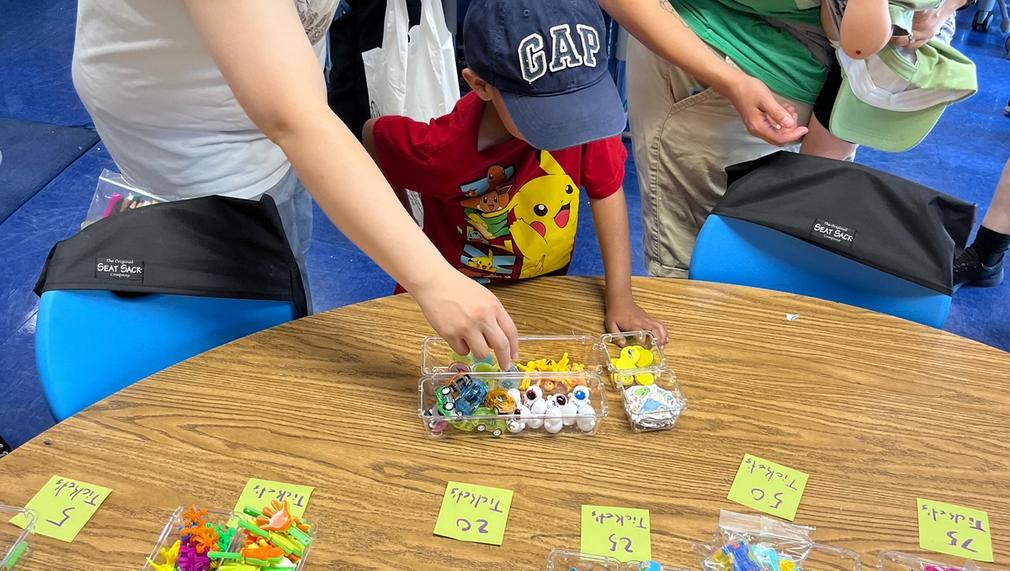Family Coding Adventures - Digital Agency for all!
Family Code Adventures addresses the scarcity of elementary coding classes and teachers by enabling parents and guardians to teach their kids to code at home. We will train parents/guardians to use an easy to understand coding program and support them as they teach their kids at home. The program will strengthen intergenerational bonds, increase BIPOC representation as digital creators and leaders, and create a digitally empowered citizenry at the dawn of Artificial Intelligence.

What is the primary issue area that your application will impact?
K-12 STEAM education
In what stage of innovation is this project, program, or initiative?
Pilot or new project, program, or initiative (testing or implementing a new idea)
What is your understanding of the issue that you are seeking to address?
Kids are connected to technology like we’ve never seen before; but most are primed to be consumers, not creators of the products they use. Sparking an inventive spirit and interest in computer science early in life gives kids motivation and confidence to choose STEAM in college and career, and become digital creators. Traditionally, teachers ignite this spark. While many LA educators have a passion to teach STEAM, few teach computer science in K-8, especially in low income areas. The result is a gap between low-income BIPOC students and their peers thriving in computer science and well-paid STEAM careers. We must expand opportunities to participate in computer science learning at an early age. Every LA kid should learn coding in this rapidly evolving world of technology. Without it, students miss the chance to develop interest, skills, and confidence in pursuing in STEM, perpetuating the persistent gap in BIPOC representation. LA needs a bridge for these students to coding education.
Describe the project, program, or initiative this grant will support to address the issue.
Family Code Adventures enables parents and guardians to teach their kids to code at home. Building from our Coding Crew model, where middle school students learn how to teach their peers to program a video game, we revealed that educators can be found in unlikely places. Its success sparked an idea- how can we teach coding to even younger kids and expand on who we perceive as educators? Key to making this a reality is using Scratch Jr., which makes coding education easy for children to learn and for adults to teach it. Importantly, Scratch Jr. allows for Spanish ensuring that we can continue to embrace the communities we’ve served for more than twenty years. Picture a child sitting on their parent’s lap or next to them on the couch. They spend some quality time using Scratch Jr. to guide them through its engaging coding activities. Cherished memories come from parents imparting knowledge and these bonds can pay dividends for the family relationship and for the child’s learning development and career prospects. We are not aware of any local programs using this strategy. In practice, the program will have three parts: recruiting families to participate, virtually training them to use Scratch Jr., and supporting them as they guide their kids through Scratch Jr projects at home. We are creating a training curriculum, confirming partners for family outreach, as well as some of our 300 education partners for outreach support.
Describe how Los Angeles County will be different if your work is successful.
At scale, our impact goes beyond digital literacy and creates digital agency for Angelenos. AI is here, and is already creating an uncertain future. A citizenry who grew up with the agency, skills, and power to participate in the digital world will make them active participants and creators of their future. Empowering families and parents to become coding educators will increase their digital agency as well and deepen the intergenerational bonds that are often weakened by technology knowledge gaps. By 2050, families will be even more engaged in curriculum that creates digital creativity as they would have grown up receiving coding education at the beginning of their academic journey and know the benefits firsthand. LA’s BIPOC kids will be early learners of computer programming, taking computer courses in greater numbers. Angelenos will intuitively understand what’s behind every screen they watch, and have an informed voice in choosing relevant policies, public education, and controls.
What evidence do you have that this project, program, or initiative is or will be successful, and how will you define and measure success?
Our evaluation approach combines quantitative and qualitative methods to gather rich, multi-faceted data. We will collect and evaluate children's first and last coding projects using a standardized rubric, allowing us to measure skill development over time. Parents will play a crucial role in the evaluation process, completing short retrospective surveys with both scaled and open-ended questions to provide insights into their experiences and observations. A select number of parents will participate in exit interviews, offering more detailed feedback. To gauge children's interest in coding, parents will ask specific questions to their kids. Throughout the program, we'll track enrollment, attendance, and completion rates. This multi-pronged evaluation approach will enable us to assess the program's success in fostering coding skills, cognitive development, and STEM interest among participating families.
Approximately how many people will be impacted by this project, program, or initiative?
Direct Impact: 130.0
Indirect Impact: 300.0